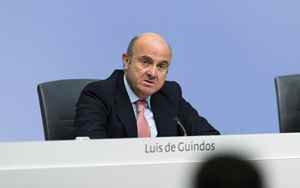(Finance) – “It is essential that financing conditions move substantially in sync in the euro area when the ECB changes its policy. For two equally strong firms, a change in the stance of monetary policy should lead to a similar reaction in the their financing conditions, regardless of the country in which they are domiciled. we will react to prevent fragmentation, with adequate safeguards to prevent moral hazard“He affirmed it Luis de Guindos, Vice-President of the ECBnoting that preventing fragmentation allows Frankfurt to adjust its monetary policy stance at the appropriate pace and stabilize inflation at the target.
The reference to moral hazard could be linked to the expectation of some countries that the ECB cannot deny anyone external intervention in the face of the emergency. “Changes in financing conditions that go beyond the level justified by fundamental factors jeopardize the achievement of the price stability objective, the Spanish economist underlined during a speech at the Frankfurt Euro Finance Summit.
“It is natural that sovereign yields differ somewhat between euro area countries, due to idiosyncratic factors, such as public debt / GDP ratios, budget deficits or long-term growth rates,” explained de Guindos. , yields can sometimes diverge rapidly from economic fundamentals.Excessive divergence renders credit conditions incompatible with the uniform transmission of monetary policy impulses and it could cause financial instability. “
The ECB official recalled the intention to raise key interest rates by 25 basis points during the July monetary policy meeting and to raise them again in September. The magnitude of the interest rate increase a September it will depend on the updated medium-term inflation outlook; in particular, if medium-term inflation prospects persist or worsen, an increase of more than 25 basis points is appropriate.
